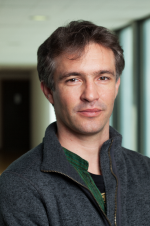
For the first podcast of 2023, Paul discusses the unique topic of whistled speech with Julien Meyer, linguist, acoustician, and professor at the European Institutes for Advanced Study at the University of Lyon, France.
Found in more than 80 languages around the world, whistled speech, or whistled language, is often used to communicate when other forms of speech cannot be used or cannot be heard, often outdoors at great distances.
Meyer was a post-doctoral associate researcher (CNPq) at the Linguistics Division of the Museu Goeldi in Belém, Brazil, from 2009 to 2013. He holds a Ph.D. in cognitive sciences option linguistics from the University of Lyon and is currently a CNRS researcher at the GIPSA-lab in Grenoble, France.
His research is focused on acoustic communication, principally human language. He studies cognitive, physiologic, ecologic and environmental constraints that influence language production and comprehension.
Meyer is the author of Whistled Languages: A Worldwide Inquiry on Human Whistled Speech (2015). He is a research fellow of the Marie Skłodowska Curie Actions programme at the French National Center for Scientific Research (CNRS) in Grenoble, for a project called Icon-Eco-Speech.
With global inquiries on whistled, drummed, and other instrumental forms of languages based on first-hand fieldwork documentation and study in 15 different language communities, Meyer has developed a unique expertise on natural human telecommunication systems and musical surrogacy encoding human language. He develops methodologies to run production and perception experiments both in the field and in the lab. His research also deals with the music-language edge and the relationships between language and natural rural environments.
For additional information about Meyer and whistled speech, visit Eurias-FP.Edu, KnowableMagazine.org, and SoundCloud.com. And for videos related to this topic, watch the YouTube clips below:
(Bach’s Cello Suite #1 in G Major BMV 1007 Prelude (by Ivan Dolgunov) is courtesy of Jamendo Licensing.)


